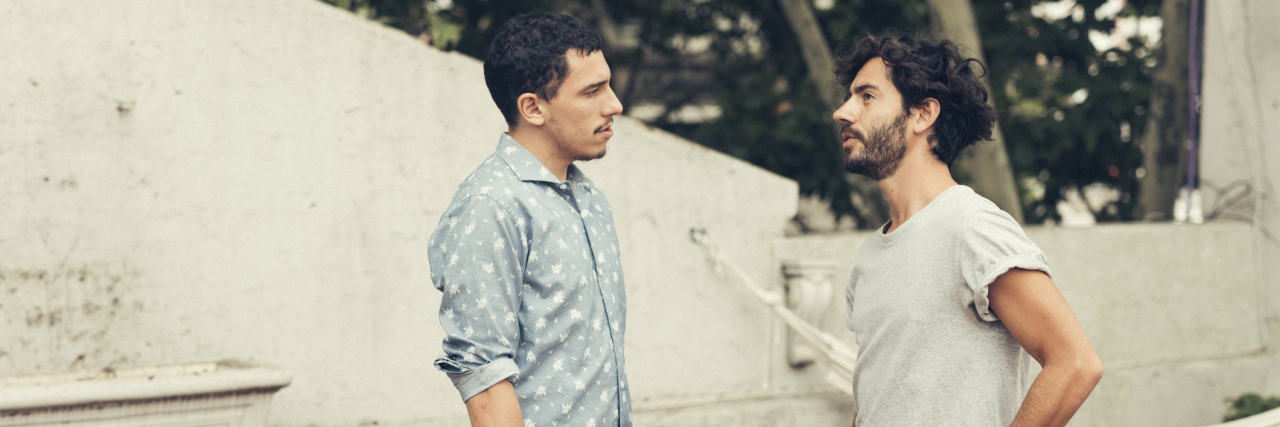Why I ‘Overshare’ My Bipolar Disorder and Addiction Journey
Editor's Note
If you or a loved one is affected by addiction, the following post could be triggering. You can contact SAMHSA’s hotline at 1-800-662-4357.
When I first got sober, I spent years writing a memoir about my misadventures with bipolar and addiction and those of others. I thought it would be therapeutic to write it all down. It was. Clickety-clacking away at my keyboard was like getting my sins of mania and addiction absolved. I didn’t hold back in writing my book “The Bipolar Addict: Drinks, Drugs, Delirium & Why Sober Is the New Cool.” And now, I can’t put the toothpaste back in the tube. But I’m OK with that.
• What is Bipolar disorder?
Showing you survived is a big stigma-buster. When I sat down to write my memoir a decade ago, I wrote the book I wanted to read — the book that didn’t exist when I got my dual diagnosis of bipolar and addiction. The book that would tell others battling bipolar and addiction that they are not alone, that there is help, and that sharing their stories is a great way to raise awareness and fight stigma.
I place no restrictions on sharing about my illnesses. No squalor is too dirty to tell. Yes, at the end of my addiction I was doing hardcore drugs with homeless people in the dark alleys of downtown Chicago. No, I am not proud of it. But I’ve shared it as a cautionary tale for my fellow people who live with bipolar and addiction and their loved ones.
I have cried hysterically in the workplace because of bipolar depression. And I was regretful of all the screwball things I did when I was manic. Writing it all down helped. It made me feel better about the place I am today — sober, stable, and happy as ever.
Today, to mark the occasion of World Bipolar Day, I am once again spilling my guts. I’ve got a particularly strong incarnation of bipolar I, and I used to self-medicate by guzzling massive quantities of beer and wine every night.
Hallmarks of my embarrassing mania included, for example, tipping the shoe shine guy $50 because that’s what I had in my wallet and I thought it was the nice thing to do, believing I was on a reality TV show, and alienating my so far one true love.
Since then, I no longer drink alcohol or do drugs. I’ve landed upon a perfect cocktail of medication. And I see a psychiatrist regularly. As a journalist, I’ve become something of an expert on bipolar and addiction, seeking out information and data that will help others. I’m one of the lucky ones.
People are afraid of the unknown. I will admit, bipolar disorder is a peculiar disease. But it doesn’t have to be so foreign and enigmatic. We are regular human beings who just happen to have a disorder of moods.
There are 5.7 million adults who have bipolar disorder in the U.S. One study found up to 45% of people with bipolar disorder also live with alcohol use disorder. Yes, the two go hand-in-hand and I live with the dual diagnosis of bipolar and addiction.
And according to another study, there are 40 to 50 million people worldwide who live with bipolar disorder. That’s a lot of people — about five times the entire population of New York City. We are not as rare as one would think.
We have embarked on a journey through the pits of hell — the mayhem of mania and debilitating depression. And we’ve come out triumphant on the other side. Yes, we can be eccentric and we may be a little bit zany, but we are our authentic, endearing selves. We are diligent and impervious and spontaneous and sincere. I’m proud to be these things and I think they are what makes me, me.
People who have bipolar disorder are like the superheroes on “X-Men.” We have a special skill that allows us to feel emotions more intensely than regular folks. We are often overflowing with empathy. The stigma of mental illness diminishes with each passing day as it gains greater visibility.
Astoundingly, approximately 13% of American adults are on antidepressants, according to a recent study by the National Center for Health Statistics. It’s a 65% rise since the late 90s to early 2000s.
In a new era of stigma-busting, there is a litany of celebrities who have come out as living with bipolar. Mariah Carey, Kanye West (AKA Ye these days), Linda Hamilton, and Halsey. As well as some who have passed like Carrie Fisher, Kurt Cobain, and Amy Winehouse. Not to mention historical figures like Edgar Allan Poe, Vincent van Gogh, and Ludwig van Beethoven to name a few. People with bipolar disorder are super cool.
I invite you — my fellow bipolar stalwarts — to come out and play. Share your stories in an effort to fight stigma. If we #KeepTalkingMH, our stigma will shrink drastically.
If you have a family member or a friend with these struggles, please wrap your arms around them. Despite our advances, we could all use a little tender loving care.
The hashtag for World Bipolar Day according to the International Bipolar Foundation is #BipolarTogether. Share your stories with this hashtag and let’s get bipolar trending on Twitter!
If I can help just one bipolar person out there or one addict, I don’t mind “oversharing.”
Getty image by visualspace

